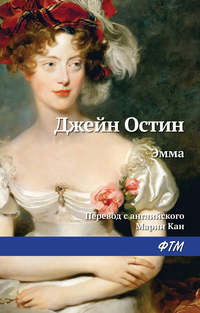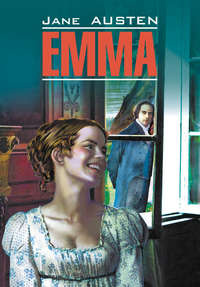
Полная версия
Collins Classics

SANDITON & OTHER STORIES
Jane Austen

Copyright
William Collins
An imprint of HarperCollinsPublishers
1 London Bridge Street
London SE1 9GF
WilliamCollinsBooks.com
First published in Great Britain by William Collins in 2019
Life & Times section © HarperCollinsPublishers Ltd
Fran Fabriczki asserts her moral rights as author of the Life & Times section
Classic Literature: Words and Phrases adapted from
Collins English Dictionary
Cover image © Shutterstock
A catalogue record for this book is available from the British Library
All rights reserved under International and Pan-American Copyright Conventions. By payment of the required fees, you have been granted the non-exclusive, non-transferable right to access and read the text of this e-book on-screen. No part of this text may be reproduced, transmitted, down-loaded, decompiled, reverse engineered, or stored in or introduced into any information storage and retrieval system, in any form or by any means, whether electronic or mechanical, now known or hereinafter invented, without the express written permission of HarperCollins
Source ISBN: 9780008325404
Ebook Edition © 2019 ISBN: 9780008325411
Version: 2019-08-23
CONTENTS
Cover
Title Page
Copyright
History of William Collins
Life and Times
Sanditon
Chapter 1
Chapter 2
Chapter 3
Chapter 4
Chapter 5
Chapter 6
Chapter 7
Chapter 8
Chapter 9
Chapter 10
Chapter 11
Chapter 12
Lady Susan
I
II
III
IV
V
VI
VII
VIII
IX
X
XI
XII
XIII
XIV
XV
XVI
XVII
XVIII
XIX
XX
XXI
XXII
XXIII
XXIV
XXV
XXVI
XXVII
XXVIII
XXIX
XXX
XXXI
XXXII
XXXIII
XXXIV
XXXV
XXXVI
XXXVII
XXXVIII
XXXIX
XL
XLI
Conclusion
The Watsons
Classic Literature: Words and Phrases
About the Publisher
History of William Collins
In 1819, millworker William Collins from Glasgow, Scotland, set up a company for printing and publishing pamphlets, sermons, hymn books, and prayer books. That company was Collins and was to mark the birth of HarperCollins Publishers as we know it today. The long tradition of Collins dictionary publishing can be traced back to the first dictionary William co-published in 1825, Greek and English Lexicon. Indeed, from 1840 onwards, he began to produce illustrated dictionaries and even obtained a licence to print and publish the Bible.
Soon after, William published the first Collins novel; however, it was the time of the Long Depression, where harvests were poor, prices were high, potato crops had failed, and violence was erupting in Europe. As a result, many factories across the country were forced to close down and William chose to retire in 1846, partly due to the hardships he was facing.
Aged 30, William’s son, William II, took over the business. A keen humanitarian with a warm heart and a generous spirit, William II was truly ‘Victorian’ in his outlook. He introduced new, up-to-date steam presses and published affordable editions of Shakespeare’s works and The Pilgrim’s Progress, making them available to the masses for the first time.
A new demand for educational books meant that success came with the publication of travel books, scientific books, encyclopedias, and dictionaries. This demand to be educated led to the later publication of atlases, and Collins also held the monopoly on scripture writing at the time.
In the 1860s Collins began to expand and diversify and the idea of ‘books for the millions’ was developed, although the phrase wasn’t coined until 1907. Affordable editions of classical literature were published, and in 1903 Collins introduced 10 titles in their Collins Handy Illustrated Pocket Novels. These proved so popular that a few years later this had increased to an output of 50 volumes, selling nearly half a million in their year of publication. In the same year, The Everyman’s Library was also instituted, with the idea of publishing an affordable library of the most important classical works, biographies, religious and philosophical treatments, plays, poems, travel, and adventure. This series eclipsed all competition at the time, and the introduction of paperback books in the 1950s helped to open that market and marked a high point in the industry.
HarperCollins is and has always been a champion of the classics, and the current Collins Classics series follows in this tradition – publishing classical literature that is affordable and available to all. Beautifully packaged, highly collectible, and intended to be reread and enjoyed at every opportunity.
Life and Times
‘The person, be it gentleman or lady, who has not pleasure in a good novel, must be intolerably stupid’, says Mr Tilney in Northanger Abbey, Austen’s own opinions clearly channeled through her hero’s words. She was a devoted fan of the novel form, at a time when it was considered a frivolous entertainment – yet coming from a family of enthusiastic readers, she would go on to be one of the most enduring and beloved practitioners of the form. Enjoying minor success during her lifetime, her three unpublished novels show that there was potential for so much more, before her life was cruelly cut short at the eleventh chapter of Sanditon.
Early years
Jane Austen was born on 16 December 1775, to George Austen, a cultivated and hardworking clergyman and Cassandra Leigh, who came from a prominent family in the gentry. Their household was completed by six brothers, and one beloved sister, Cassandra. Despite George Austen’s many efforts, including some farming, and running a boarding school, the family were in constant financial difficulty. However, they were uncharacteristically literary for a family of their stature. Their library housed over 500 books, and many members of the family engaged in some form of literary activity – Cassandra wrote comic verse, while two of their brothers ran a literary journal called The Loiterer, and they all often took part in amateur theatricals at home.
It is difficult to establish much of Austen’s early biography, as her work lacked an overtly autobiographical element, even though the novels were all set in her general social milieu. Later accounts of her life are derived from letters to her sister Cassandra, and two biographies, one by her brother, and one by her nephew – both of which tend to editorialize her life through their own lens of propriety. We do know that she was a prolific writer from the young age of eleven, beginning with tongue-in-cheek parodies of the novels she found in her family library. The longest and most prominent of these is Love and Freindship, which was a burlesque of the prevalent sentimental genre of the time.
‘Female Scribblers’
It was not unprecedented for a woman to have a career in writing at the end of the eighteenth century – in fact, Austen arrived at a time when professional female authors such as Ann Radcliffe and Frances Burney were carving out a market for themselves, and making a living from their writing. Austen never became as successful in her lifetime as some of her contemporaries, but her correspondences show that she was very much involved in the monetary side of her writing career. This makes sense considering that she was allowed merely £20 a year while her father was alive, and after his death was entirely reliant upon the charity of relatives. There were very few avenues for women to make money of their own, and even if they found one, it was considered at odds with respectability. Later accounts of Austen’s life attempted to portray her as indifferent to the monetary success of her writing, but this is likely more a reflection on contemporary social norms than fact. By the end of her career it is estimated that she had made £600-£700 from her writing alone, which is not inconsiderable given her financial status.
Lady Susan
Lady Susan was one of her earliest completed works, composed in around 1795, and the only one of her fully formed novels that was written in the epistolary form. It follows the exploits of the female rake, Lady Susan, who pursues men for their fortunes without scruples. That it was never published, Austen’s nephew later attributed to the fact that Austen herself considered it unworthy, but it is more likely that social strictures of the time would have made it unpopular or risqué. Through its epistolary form, it provides a unique insight into the thoughts and desires of its female protagonist, who seems incorrigible, but is nevertheless wonderfully entertaining. Likely modelled on Austen’s worldly cousin, Countess Eliza de Feuillide, Lady Susan is unlike any of Austen’s later heroines in her vivacious amorality, though we see some of her in the likes of Mary Crawford and even Elizabeth Bennet. The story of Lady Susan forms the basis of the cinematic work Love and Friendship (somewhat confusingly titled after a different story of Austen’s), starring Kate Beckinsale – the success of which is an indication, perhaps, that the work was simply ahead of its time.
The Watsons
Austen likely began writing The Watsons in 1804, by which time she had completed drafts of three of her major works – Sense and Sensibility, Pride and Prejudice and Northanger Abbey – but had not yet succeeded in publishing any. Once again, our knowledge of its composition process is coloured by the biographies written by her relatives. According to her nephew, the reason Austen abandoned the project was that she realized ‘the evil of having placed her heroine too low, in such a position of poverty and obscurity as, though not necessarily connected with vulgarity, has a sad tendency to degenerate into it’. The novel does indeed follow the lives of a family of much more diminished standing than was customary in Austen’s work, but she herself was quite familiar with financial difficulty, especially at this stage of her life. In 1805, Austen’s father died, leaving his two daughters in a state of sadness and significantly reduced standing. These personal circumstances are likely to have contributed to the fact that Austen abandoned the project. The revisions she made on the pages also give us an idea of the writing process – she seems to have struggled towards the end to conclude her narrative, with too many loose ends to tie up. She went on to use many elements from this unfinished novel in later works however, it is unique in representing the dire financial circumstances of unmarried women – a subject which is later handled more delicately through characters such as Jane Fairfax in Emma.
Sanditon – the final work
When Austen began work on Sanditon in January 1817, she was already suffering from the illness that would eventually lead to her untimely death. However, she was initially optimistic, and her buoyant and hopeful mood is reflected in the humour of the work. Yet on 18 March, she wrote the last words in her final novel, after two months’ effort. It seems ironic that her chosen topic was the life of invalids and hypochondriacs in a seaside resort, at a time when she herself was beset with illness. It shows that Austen continually viewed her own situation in a comedic light. It is also a return to the more overtly parodic tendencies of her early work, after more considered and nuanced novels such as Persuasion and Mansfield Park. The work was once again subject to posthumous editorialization by Austen’s nephew, and the novel in its entirety only appeared in print in 1925. Despite initial critical skepticism towards this later work, there is much to admire in it – Austen’s writing had become more self-assured, and she seems to have reveled in her lively use of language, as well as the incisive parody of human nature’s worst tendencies.
Sanditon, more than anything, shows that Austen was never content to continue a trajectory of writing, or to conform to contemporary norms – constantly looking ahead, and experimenting with her writing, we can only wonder where else her words would have taken her had she been granted the opportunity of a longer career.
CHAPTER 1
A gentleman and a lady travelling from Tunbridge towards that part of the Sussex coast which lies between Hastings and Eastbourne, being induced by business to quit the high road and attempt a very rough lane, were overturned in toiling up its long ascent, half rock, half sand. The accident happened just beyond the only gentleman’s house near the lane—a house which their driver, on being first required to take that direction, had conceived to be necessarily their object and had with most unwilling looks been constrained to pass by. He had grumbled and shaken his shoulders and pitied and cut his horses so sharply that he might have been open to the suspicion of overturning them on purpose (especially as the carriage was not his master’s own) if the road had not indisputably become worse than before, as soon as the premises of the said house were left behind—expressing with a most portentous countenance that, beyond it, no wheels but cart wheels could safely proceed. The severity of the fall was broken by their slow pace and the narrowness of the lane; and the gentleman having scrambled out and helped out his companion, they neither of them at first felt more than shaken and bruised. But the gentleman had, in the course of the extrication, sprained his foot—and soon becoming sensible of it, was obliged in a few moments to cut short both his remonstrances to the driver and his congratulations to his wife and himself—and sit down on the bank, unable to stand.
“There is something wrong here,” said he, putting his hand to his ankle. “But never mind, my dear—” looking up at her with a smile, “it could not have happened, you know, in a better place—Good out of evil. The very thing perhaps to be wished for. We shall soon get relief. There, I fancy, lies my cure—” pointing to the neat-looking end of a cottage, which was seen romantically situated among wood on a high eminence at some little distance—“Does not that promise to be the very place?”
His wife fervently hoped it was; but stood, terrified and anxious, neither able to do or suggest anything, and receiving her first real comfort from the sight of several persons now coming to their assistance. The accident had been discerned from a hayfield adjoining the house they had passed. And the persons who approached were a well-looking, hale, gentlemanlike man, of middle age, the proprietor of the place, who happened to be among his haymakers at the time, and three or four of the ablest of them summoned to attend their master—to say nothing of all the rest of the field—men, women and children, not very far off.
Mr. Heywood, such was the name of the said proprietor, advanced with a very civil salutation, much concern for the accident, some surprise at anybody’s attempting that road in a carriage, and ready offers of assistance. His courtesies were received with good breeding and gratitude, and while one or two of the men lent their help to the driver in getting the carriage upright again, the traveller said, “You are extremely obliging, sir, and I take you at your word. The injury to my leg is, I dare say, very trifling. But it is always best in these cases, you know, to have a surgeon’s opinion without loss of time; and as the road does not seem in a favourable state for my getting up to his house myself, I will thank you to send off one of these good people for the surgeon.”
“The surgeon, sir!” exclaimed Mr. Heywood. “I am afraid you will find no surgeon at hand here, but I dare say we shall do very well without him.”
“Nay sir, if he is not in the way, his partner will do just as well, or rather better. I would rather see his partner. Indeed I would prefer the attendance of his partner. One of these good people can be with him in three minutes, I am sure. I need not ask whether I see the house,” (looking towards the cottage) “for excepting your own, we have passed none in this place which can be the abode of a gentleman.”
Mr. Heywood looked very much astonished, and replied: “What, sir! Are you expecting to find a surgeon in that cottage? We have neither surgeon nor partner in the parish, I assure you.”
“Excuse me, sir,” replied the other. “I am sorry to have the appearance of contradicting you, but from the extent of the parish or some other cause you may not be aware of the fact. Stay. Can I be mistaken in the place? Am I not in Willingden? Is not this Willingden?”
“Yes, sir, this is certainly Willingden.”
“Then, sir, I can bring proof of your having a surgeon in the parish, whether you may know it or not. Here, sir,” (taking out his pocket book) “if you will do me the favor of casting your eye over these advertisements which I cut out myself from the Morning Post and the Kentish Gazette, only yesterday morning in London, I think you will be convinced that I am not speaking at random. You will find in it an advertisement of the dissolution of a partnership in the medical line in your own parish—extensive business, undeniable character respectable references wishing to form a separate establishment. You will find it at full length, sir,”—offering the two little oblong extracts.
“Sir,” said Mr. Heywood with a good humoured smile, “if you were to show me all the newspapers that are printed in one week throughout the kingdom, you would not persuade me of there being a surgeon in Willingden,” said Mr. Heywood with a good-humoured smile. “Having lived here ever since I was born, man and boy fifty-seven years, I think I must have known of such a person. At least I may venture to say that he has not much business. To be sure, if gentlemen were to be often attempting this lane in post-chaises, it might not be a bad speculation for a surgeon to get a house at the top of the hill. But as to that cottage, I can assure you, sir, that it is in fact, in spite of its spruce air at this distance, as indifferent a double tenement as any in the parish, and that my shepherd lives at one end and three old women at the other.”
He took the pieces of paper as he spoke, and, having looked them over, added, “I believe I can explain it, sir. Your mistake is in the place. There are two Willingdens in this country. And your advertisement refers to the other, which is Great Willingden or Willingden Abbots, and lies seven miles off on the other side of Battle—quite down in the Weald. And we, sir,” he added, speaking rather proudly, “are not in the Weald.”
“Not down in the weald, I am sure,” replied the traveller pleasantly. “It took us half an hour to climb your hill. Well, I dare say it is as you say and I have made an abominably stupid blunder—all done in a moment. The advertisements did not catch my eye till the last half hour of our being in town—when everything was in the hurry and confusion which always attend a short stay there. One is never able to complete anything in the way of business, you know, till the carriage is at the door. And, accordingly satisfying myself with a brief inquiry, and finding we were actually to pass within a mile or two of aWillingden, I sought no farther … My dear,” (to his wife) “I am very sorry to have brought you into this scrape. But do not be alarmed about my leg. It gives me no pain while I am quiet. And as soon as these good people have succeeded in setting the carriage to rights and turning the horses round, the best thing we can do will be to measure back our steps into the turnpike road and proceed to Hailsham, and so home, without attempting anything farther. Two hours take us home from Hailsham. And once at home, we have our remedy at hand, you know. A little of our own bracing sea air will soon set me on my feet again. Depend upon it, my dear, it is exactly a case for the sea. Saline air and immersion will be the very thing. My sensations tell me so already.”
In a most friendly manner Mr. Heywood here interposed, entreating them not to think of proceeding till the ankle had been examined and some refreshment taken, and very cordially pressing them to make use of his house for both purposes.
“We are always well stocked,” said he, “with all the common remedies for sprains and bruises. And I will answer for the pleasure it will give my wife and daughters to be of service to you in every way in their power.”
A twinge or two, in trying to move his foot, disposed the traveller to think rather more than he had done at first of the benefit of immediate assistance; and consulting his wife in the few words of “Well, my dear, I believe it will be better for us,” he turned again to Mr. Heywood, and said: “Before we accept your hospitality sir, and in order to do away with any unfavourable impression which the sort of wild-goose chase you find me in may have given rise to, allow me to tell you who we are. My name is Parker, Mr. Parker of Sanditon; this lady, my wife, Mrs. Parker. We are on our road home from London. My name perhaps, though I am by no means the first of my family holding landed property in the parish of Sanditon, may be unknown at this distance from the coast. But Sanditon itself—everybody has heard of Sanditon. The favourite for a young and rising bathing-place, certainly the favourite spot of all that are to be found along the coast of Sussex—the most favoured by nature, and promising to be the most chosen by man.”
“Yes, I have heard of Sanditon,” replied Mr. Heywood. “Every five years, one hears of some new place or other starting up by the sea and growing the fashion. How they can half of them be filled is the wonder! Where people can be found with money and time to go to them! Bad things for a country—sure to raise the price of provisions and make the poor good for nothing—as I dare say you find, sir.”
“Not at all, sir, not at all,” cried Mr. Parker eagerly. “Quite the contrary, I assure you. A common idea, but a mistaken one. It may apply to your large, overgrown places like Brighton or Worthing or Eastbourne but not to a small village like Sanditon, precluded by its size from experiencing any of the evils of civilization. While the growth of the place, the buildings, the nursery grounds, the demand for everything and the sure resort of the very best company whose regular, steady, private families of thorough gentility and character who are a blessing everywhere, excited the industry of the poor and diffuse comfort and improvement among them of every sort. No sir, I assure you, Sanditon is not a place—”








![Love and Freindship [sic]](/covers_200/25019987.jpg)
